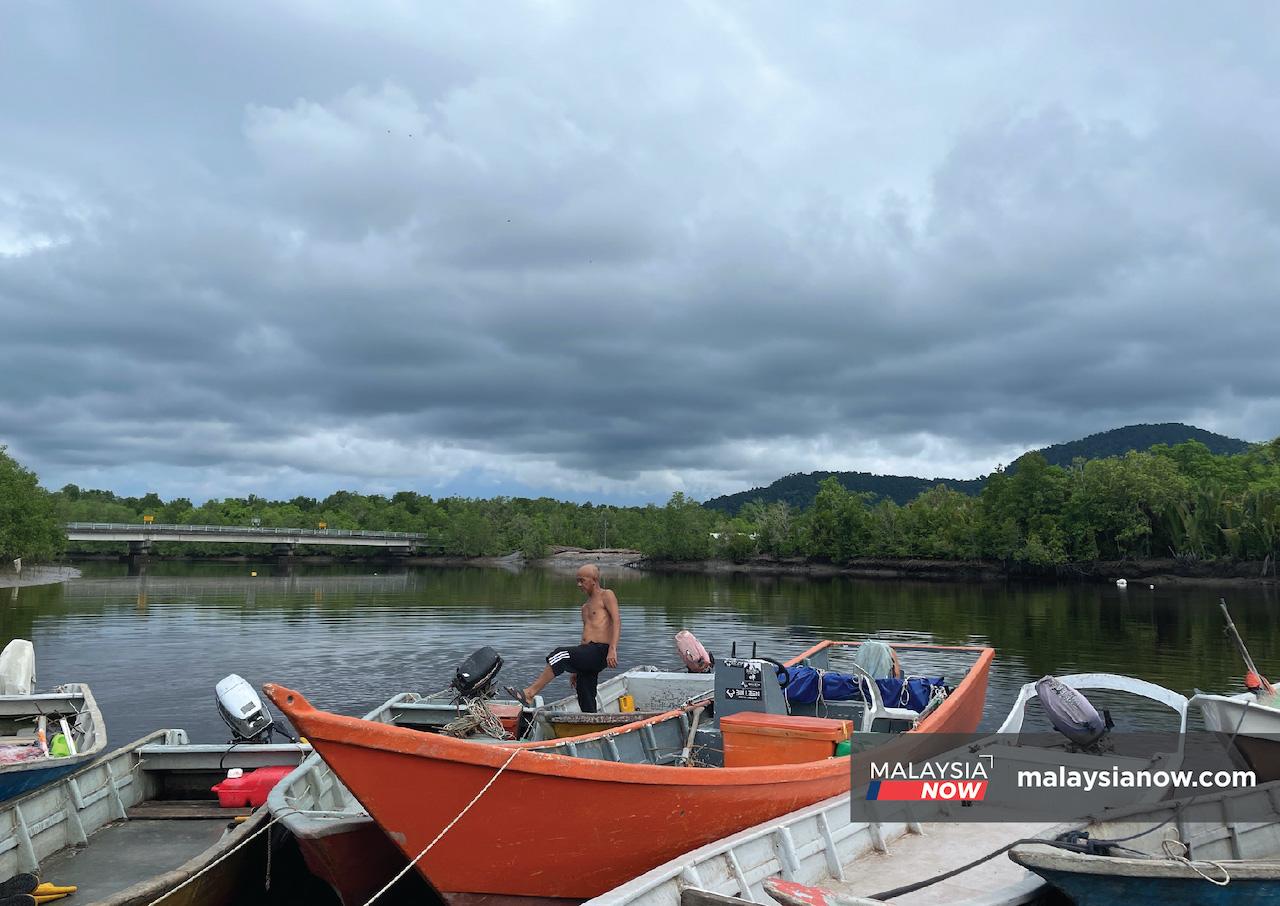Sarawak fishermen stumped by dwindling catch
While the exact reason for the drop in fish population is unknown, the situation is forcing some of them to turn to jobs on land.
For nearly two decades, Bujang, a fisherman from a small village in Sarawak, has followed the same daily routine for several crucial months each year.
Every morning before sunrise, he goes down to the jetty of Kampung Sampadi in Lundu, a rural district some 50km away from the city of Kuching.
There, he loads fuel, ice and other supplies into his rickety old boat, double checking to make sure his fishing nets are safely stowed on board before heading out in search of Sarawak mackerel.
During good seasons, he can make enough money to live on throughout the transition phase of the monsoon, when bad weather keeps him from going out to fish.
With the cash he earns, he can buy extra household items and even think about small home improvement projects.
This year, though, there will be no repairs to his home as the once-plentiful mackerel population has dwindled to nearly nothing.
“Previously, a trip of a few hours would see me return with a few hundred kg of fish,” he told MalaysiaNow. This would be enough to earn him about RM500 per day.
But this year, things are very different.
“The amount of catch is less,” Bujang said. “Most days, I return with nothing at all. We are making a loss, and the crisis looks set to get worse in the days ahead.”
While he normally fishes for mackerel in the river, the shrinking haul sometimes forces him to venture out to sea. If he chooses to make longer trips, he must also pay for more fuel.
With his savings rapidly shrinking as well due to the Covid-19 pandemic, his future appears bleak and he is uncertain how much longer he can continue relying on his fishing skills to earn an income.
“I wanted to make up for the pandemic crisis by earning a good catch,” he said.
“If we get a good catch, we can live a good life for the rest of the year and we can even afford to repair our house.”

With the next transition phase of the monsoon looming ahead, Bujang is worried about how to provide for his family despite the government assistance received so far, including cash aid and a food basket.
He has been land-bound for months now, earning a meagre income by chopping down wood from a nearby mangrove forest and selling it to a construction company for RM4 per piece.
“I don’t have any other choice,” he said simply. “I have a family to feed and I need to buy school uniforms for my children.”
Bad weather, human activity or God’s plan?
Azani Mujahid of Universiti Malaysia Sarawak said the drop in fish population due to a loss of fisheries was likely the result of human activity.
“One possible reason may be development or the loss of coastal protected areas provided by the natural ecosystem,” he told MalaysiaNow.
While the Sarawak Fishermen’s Association chalks up the situation to bad weather, Azani said there was no evidence so far that the loss of fisheries was attributable to climate change.
In general, Sarawak has been seeing warmer temperatures in its regional waters although the warming is uneven across the region with higher temperatures in the Western Pacific.
But Azani said the link between fish population and climate change was a “complex issue”.
“Although the largest impacts of climate change can cause a loss of fisheries, the evidence we see for this loss might not have been caused by climate change per se,” he said.

He added that the loss of fish nursery grounds in protected ecosystems due to storms has not been documented either.
Developments in Lundu include the Batang Rambungan Bridge which, once completed, is expected to help stimulate the local economy.
But while the residents of Kampung Sempadi are generally eager for the finished product, the long-term effect of such development remains to be seen.
For now, fishermen like Bujang continue to grapple with the problem of their dwindling catch.
Some see the situation as inevitable.
“Many complain that the water is changing so much lately because the fish are now hard to find,” Sharkawi Nawi, the village community leader said.
“I don’t know why this happens. This is all God’s plan.”
Subscribe to our newsletter
To be updated with all the latest news and analyses daily.
